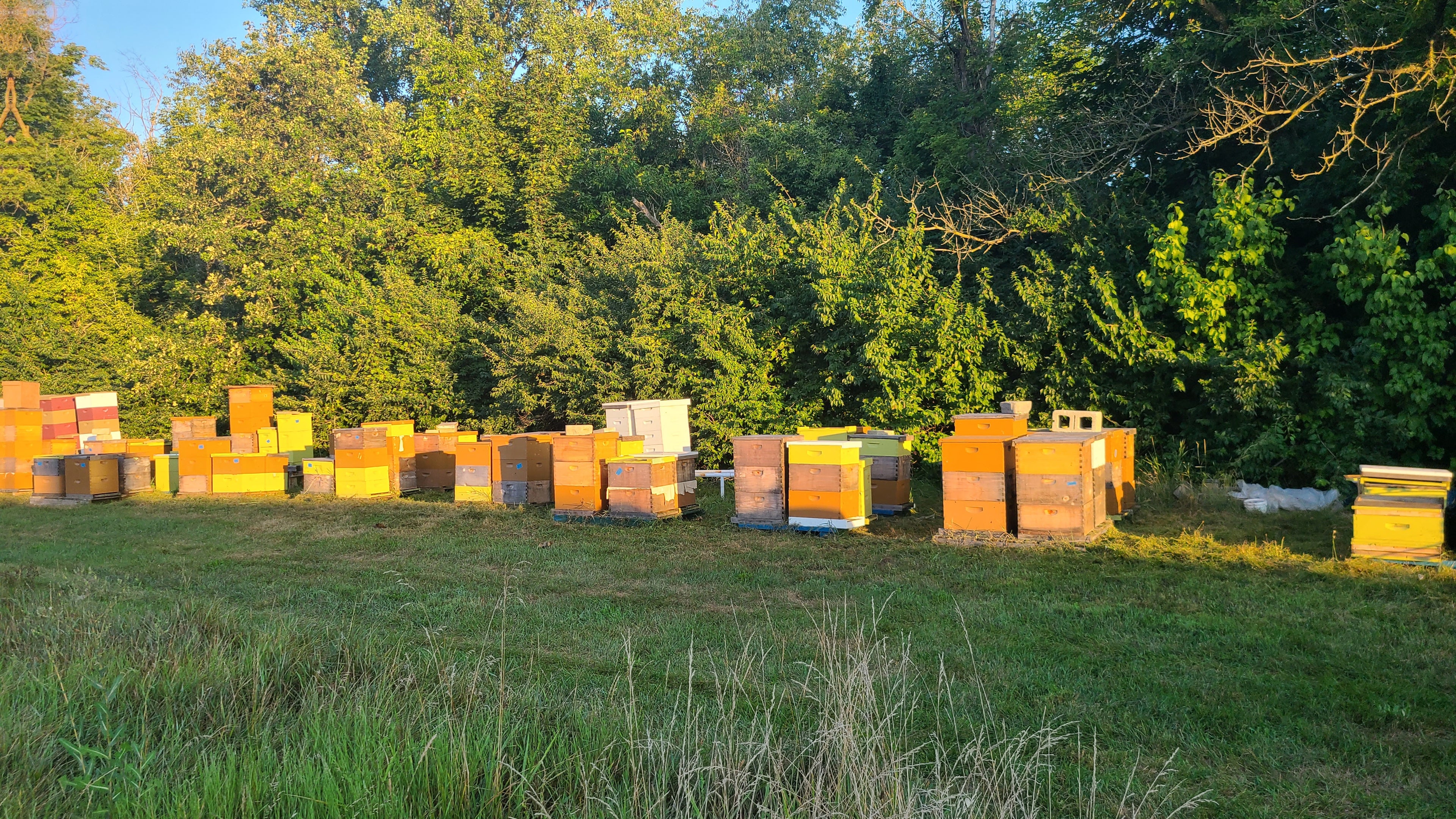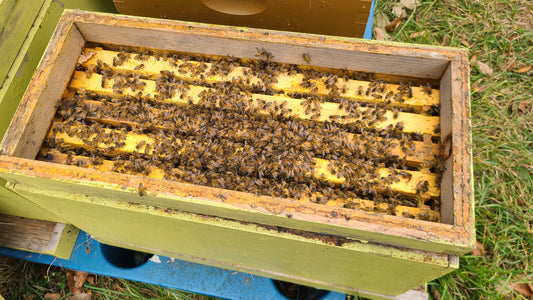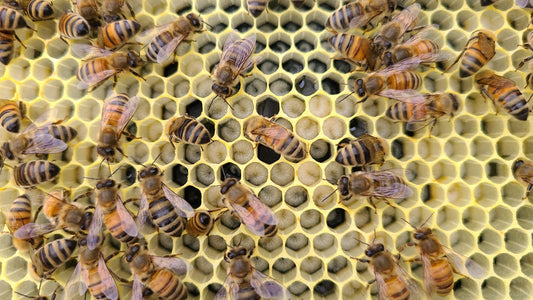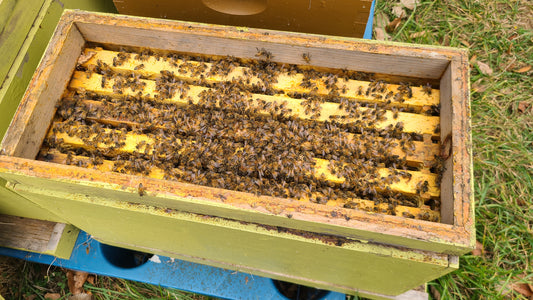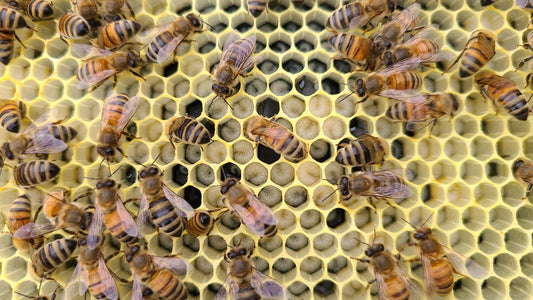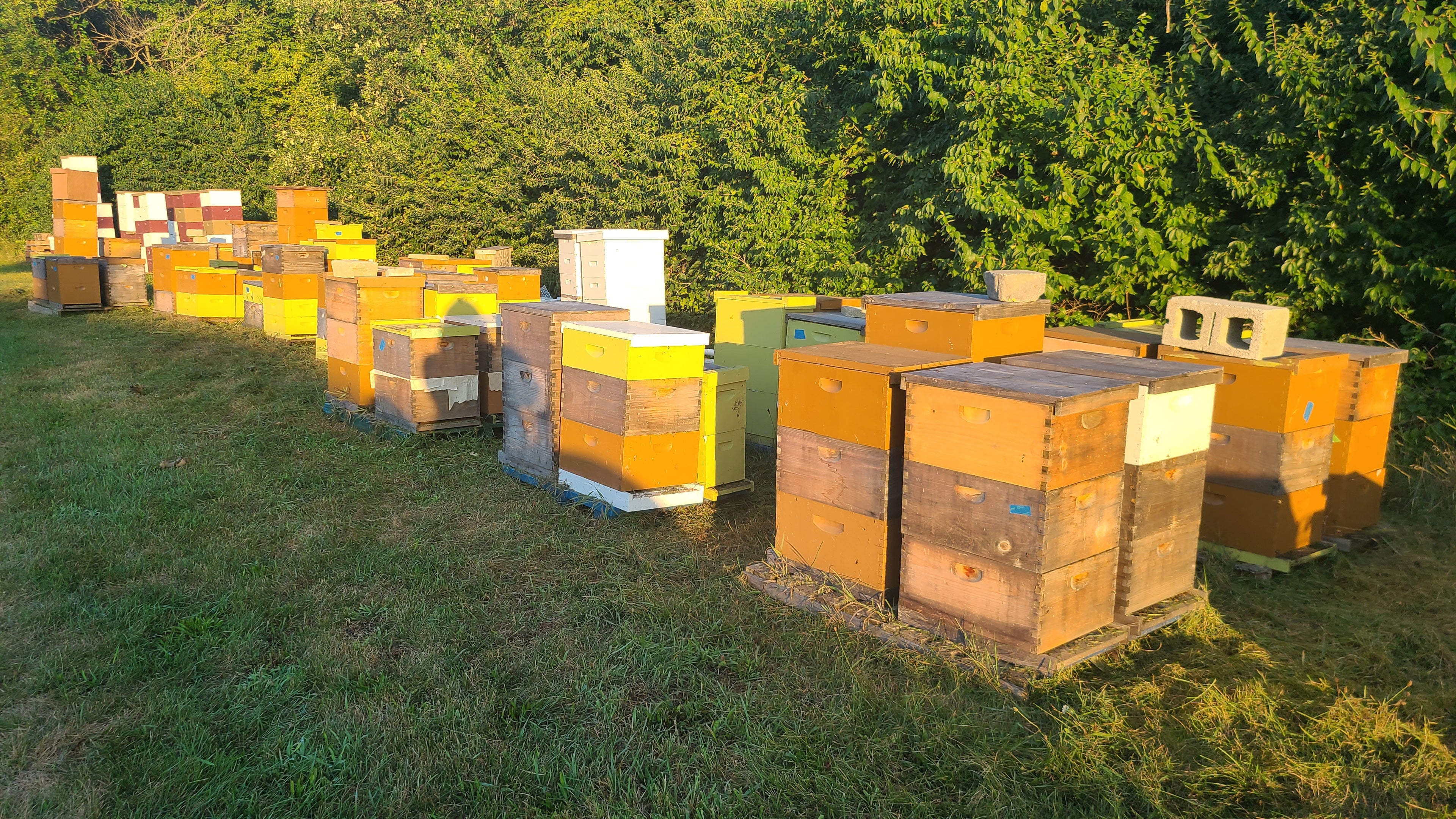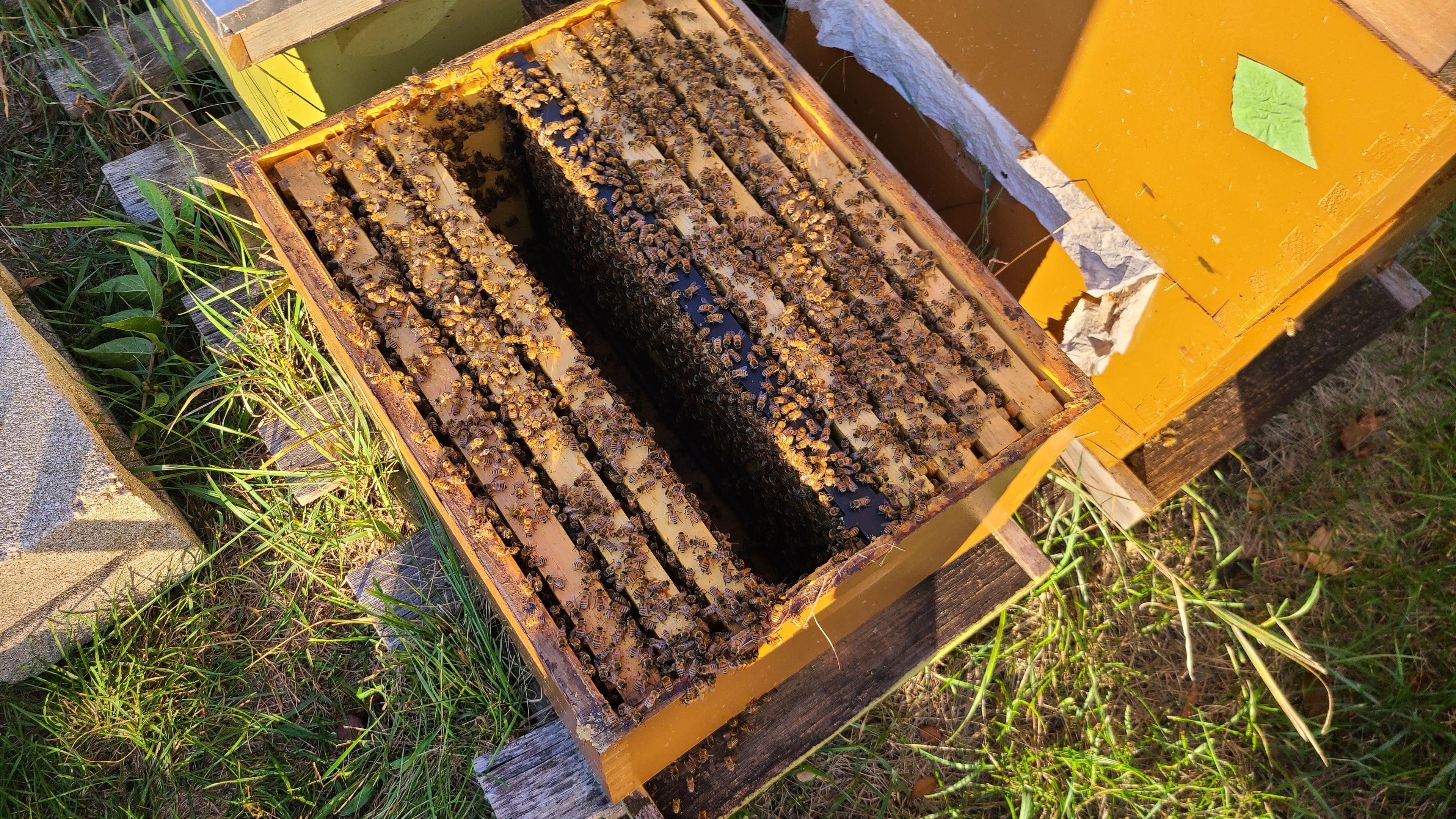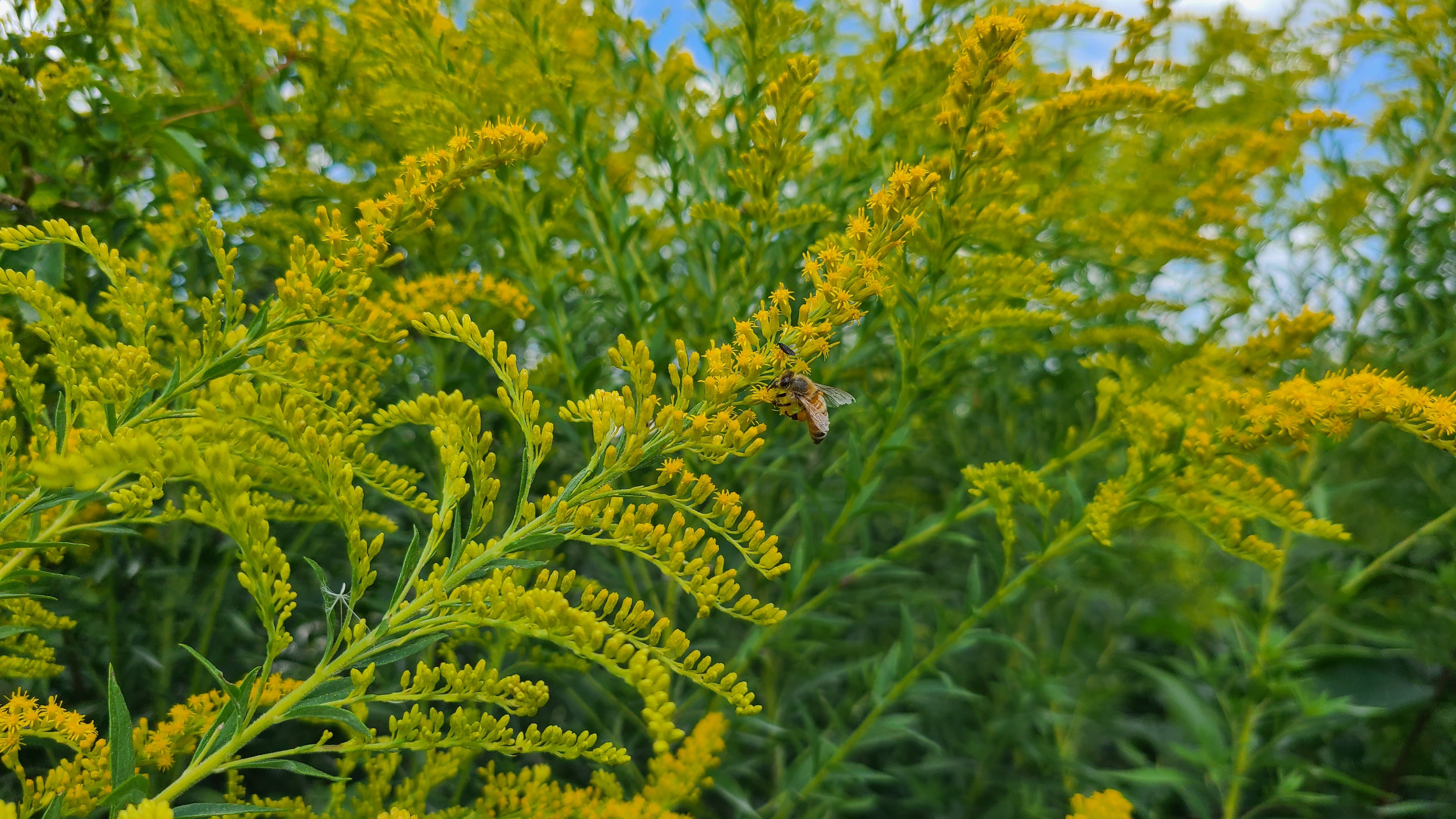Featured products
-
Honey Bee Nuc Colony with 2023 Michigan Queen (DEPOSIT)
Regular price $25.00 USDRegular priceUnit price per -
Michigan Honey Bee Nuc Colony with Overwintered Queen (DEPOSIT)
Regular price $25.00 USDRegular priceUnit price per
What happens if I miss the scheduled pickup time for my bees? Can I get a refund?
Answer: Unfortunately, payments for bees are non-refundable. When you place an order for bees in the early spring, you are reserving them from our bee supplier. We pay for the bees in advance, based on your commitment to purchase a hive or hives. Therefore, if you are unable to pick up your bees at the scheduled time, we are unable to offer a refund for the missed pickup. We encourage you to make every effort to pick up your bees as scheduled, as this ensures that the bees can be properly cared for and settled into their new home in a timely manner.
Should I provide food for my bees after installing them?
Whether or not to provide food for your bees after installing them depends on the timing of their arrival. If you receive your bees early in the spring before trees are in bloom and the weather is still chilly at night, it is recommended to provide them with food as a precaution. A mixture of one part sugar dissolved in one part water will suffice. On the other hand, if you receive your bees later in the spring, around mid May, it is generally not necessary to provide them with supplemental food. If you are uncertain, it is always better to err on the side of caution and feed them, as this will not harm the bees in any way. If you your bees have to draw foundation it can be beneficial to feed them to encourage them to draw out the foundation.
How soon after picking up my bees should I transfer them to their new hive?
You should transfer your bees to their new hive immediately after picking them up. A NUC or package is intended for transportation purposes only and is not a suitable living environment for the bees. Even if the NUC is placed in the shade, it can become hot and uncomfortable for the bees. Therefore, it is essential to transfer the bees into their new hive as soon as possible to ensure their well-being and survival. Do not leave the bees in the nuc for any length of time.
Do you offer any guarantees for your bees?
We provide a guarantee that, at the time of pickup, all the bees are checked and confirmed to be healthy and alive. However, once the bees leave our premises, we cannot offer any guarantees. If you collect your bees during the designated pickup time and immediately transport them to their new home for installation, things should go smoothly. However, if you miss the scheduled pickup time, there is a risk that the bees may suffer from heat, lack of food or water, and perish. It is important to note that we sell the bees in plastic nucs designed for transportation, not as a permanent home for the bees. Therefore, it is essential to remove the bees from the nuc and install them in their new hive as soon as possible to ensure their well-being and survival.
When are the bees available for pickup?
The timing for bee pickup depends largely on the weather conditions. Our bees are sourced from Michigan overwintered stock, which means that we cannot have our nucs ready as early as those imported from southern regions with milder climates. Typically, the bees are ready for pickup from early May to early June. However, we carefully monitor the weather and wait until conditions are favorable before releasing the nucs. We do not want to risk our customers taking their bees home during unfavorable weather conditions, such as four days of rain or even snow, which could make it difficult for the bees to acclimate and start working. Our priority is to ensure that the bees are healthy and ready to thrive in their new environment.
What can people do to help protect honey bees?
Honey bees play a vital role in our ecosystem, as they are responsible for pollinating a wide variety of plants, including many of the fruits and vegetables that we eat. Unfortunately, honey bees face numerous threats that have led to significant declines in their populations in recent years. Some of the biggest challenges facing honey bees include habitat loss, exposure to pesticides and other chemicals, and diseases and pests such as the varroa mite. So what can people do to help protect honey bees?
One of the most important things that people can do to protect honey bees is to plant bee-friendly flowers and other plants in their yards and gardens. Bees need a variety of flowers to feed on throughout the year, so it's a good idea to choose plants that bloom at different times. Some great options include lavender, bee balm, black-eyed Susans, and sunflowers. Avoid using pesticides and herbicides, as these chemicals can be harmful to bees and other beneficial insects. Instead, try natural pest control methods such as companion planting, which involves planting certain plants together to repel pests.
Another way to help protect honey bees is to support local beekeepers. Buying honey and other products from local beekeepers not only supports the local economy, but also helps to ensure the survival of honey bee populations. In addition, many beekeepers are actively working to protect honey bees by using sustainable and natural beekeeping methods.
Educating others about the importance of honey bees is also crucial. Many people are unaware of the role that honey bees play in our ecosystem, so spreading the word can help to raise awareness and encourage others to take action. This can be as simple as sharing information on social media or talking to friends and family about the importance of protecting honey bees.
Finally, supporting organizations that work to protect honey bees is another way to help. There are many nonprofit organizations that are dedicated to protecting honey bees, such as the Honeybee Conservancy, the Pollinator Partnership, and the Xerces Society. Donating money or volunteering time to these organizations can help to support their efforts to protect honey bees and other pollinators.
In conclusion, honey bees are an important part of our ecosystem, and it's up to all of us to take action to protect them. By planting bee-friendly plants, supporting local beekeepers, educating others, and supporting organizations that work to protect honey bees, we can all do our part to ensure that these important pollinators continue to thrive for generations to come.
